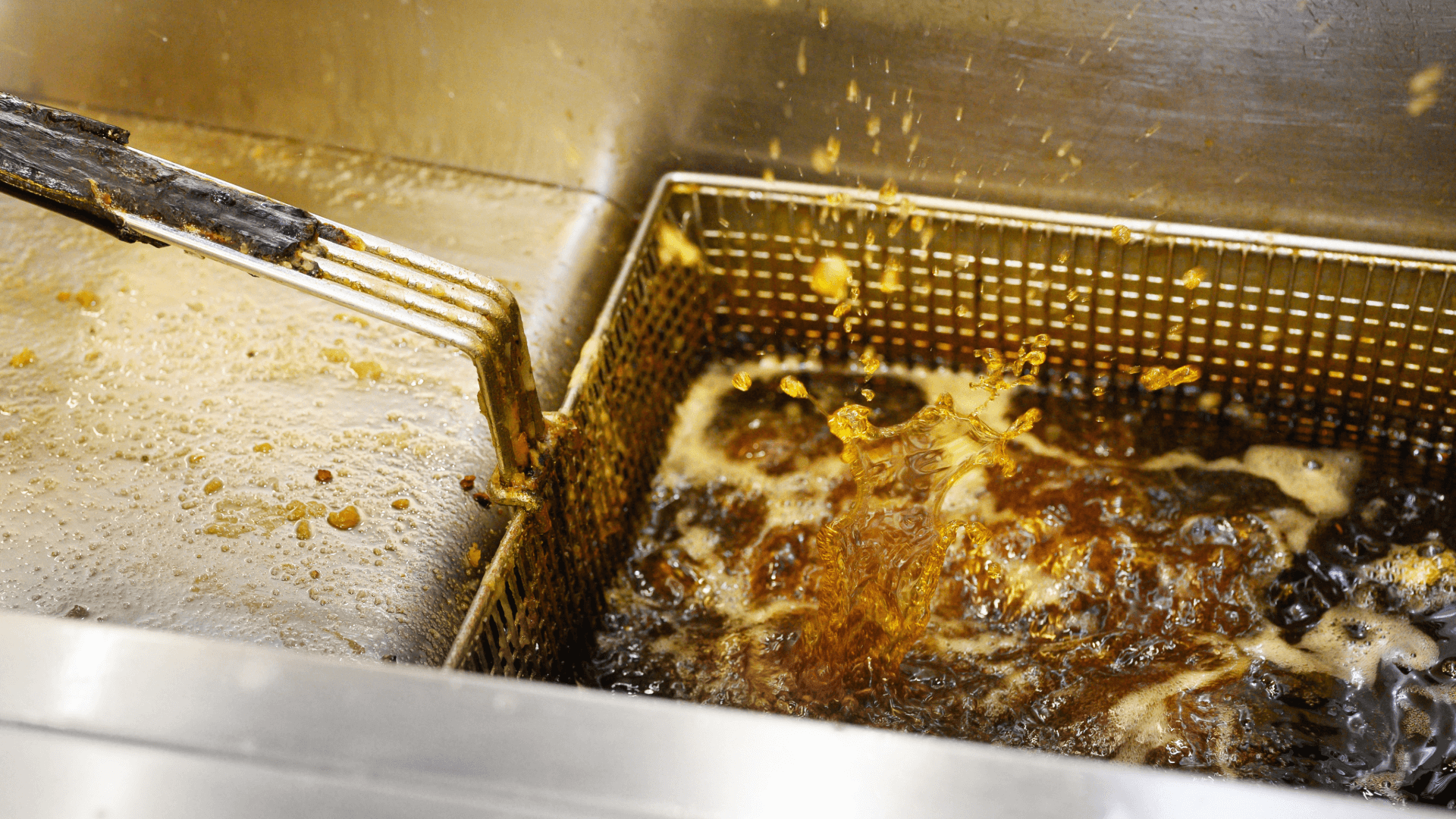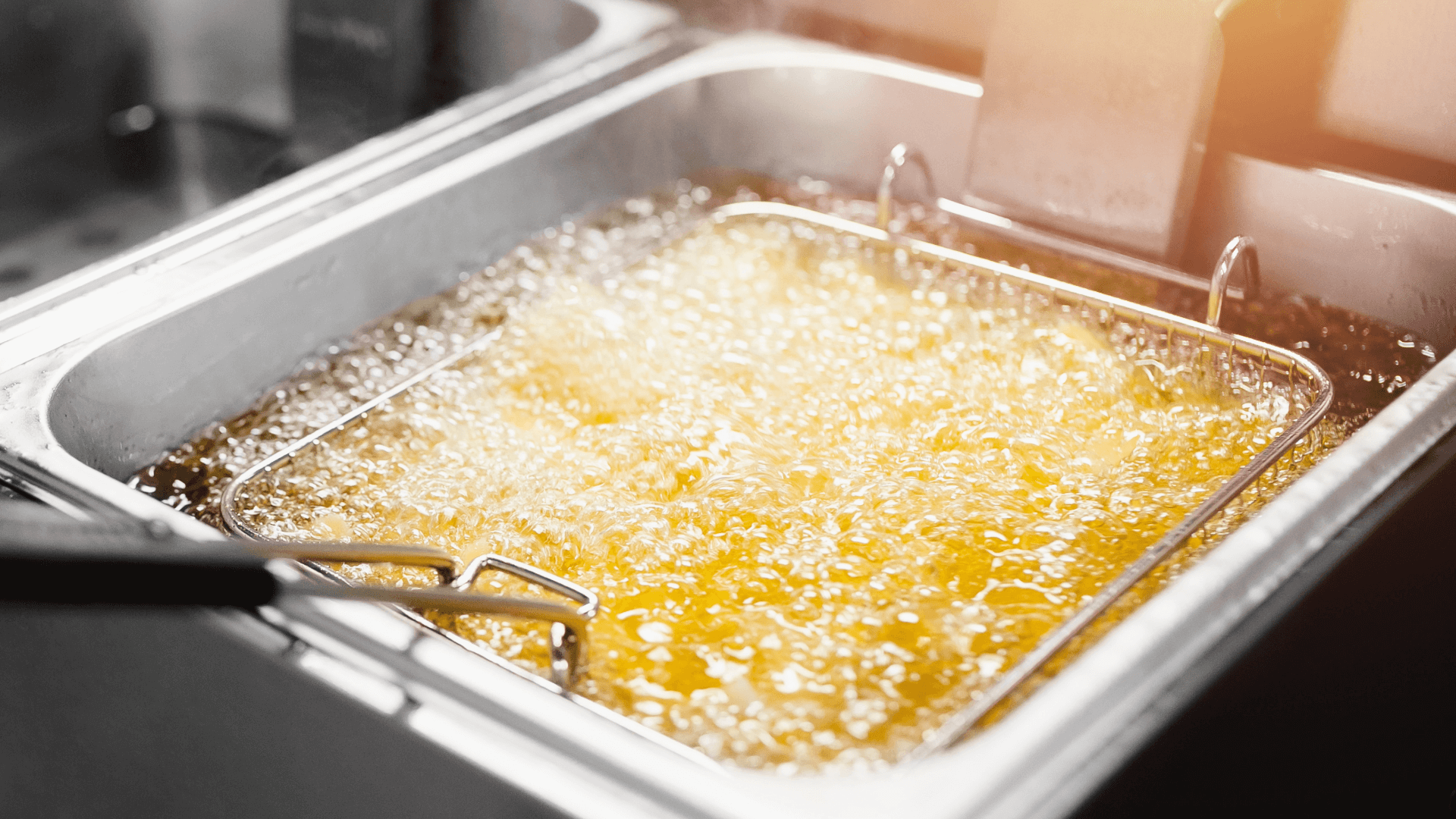How to Dispose of Frying Oil the Right Way
Posted by Emma on 7th Sep 2024 Reading Time:
Frying oil is a staple in every fish and chip shop; However, once it's served its purpose, the question arises: what do you do with used frying oil? Improper frying oil disposal, such as pouring it down the drain, can lead to clogged pipes, environmental damage, and even hefty fines if you're running a business. Fortunately, there are eco-friendly and safe ways to get rid of used oil, ensuring you stay compliant with regulations and help protect the planet.

Let's start with a clear message: never pour cooking oil down the sink or drain. Despite a common misconception, hot water won't prevent blockages. Instead, oil solidifies as it cools, eventually clogging pipes or drains further down the line. This leads to expensive plumbing repairs and contributes to wider environmental pollution. The good news? Most cooking oil can be recycled, repurposed, or disposed of safely. Let's explore how both businesses and households can handle cooking oil responsibly.
Cooking oil disposal is a more regulated process for businesses such as fish & chip shops, restaurants, cafes, and catering services. UK law, specifically the Food Safety Act 1990 and Environmental Protection Act 1990, requires businesses to handle waste oil responsibly.
Secure Storage: Used oil must be stored in appropriate leak-proof and covered containers. The type of container depends on the amount of oil your business produces, ranging from small barrels to large tanks. If you use liquid oil, you could use these to discard used oil but ensure the oil has cooled before pouring it back in.
Licensed Waste Collection: Businesses must use a licensed waste carrier to collect and transport used oil. These carriers ensure the oil is either recycled into biofuels or disposed of safely. Failing to comply can result in penalties, including fines or prosecution.
Duty of Care: Businesses must follow the 'duty of care' obligations, which means keeping the storage area clean, securing the oil to avoid theft, and ensuring regular collections. Neglecting this responsibility can harm the environment and damage your business reputation.
Oil pollution is a significant issue, accounting for around 16% of pollution incidents in the UK. Improperly disposing of cooking oil can contaminate waterways, harm wildlife, and damage ecosystems. Even more concerning, oil can enter drinking water supplies, posing risks to human health.
By recycling and properly disposing of cooking oil, businesses and households can help mitigate these risks. This is why it's so important to follow the guidelines set out by environmental agencies and ensure that waste oil is handled responsibly.

Tips for Safe Oil Disposal
Store Waste Oil Safely: Always store used oil in secure, leak-proof containers until you're ready to dispose of it.
Use Ceres Natural Degreaser: For businesses handling large volumes of oil, it's essential to keep the storage area clean. Ceres Natural Degreaser effectively removes grease and residues without introducing harmful chemicals into the environment.
Know the Value of Your Waste Oil: Waste cooking oil has value when recycled, so protect it by locking up barrels or drums and ensuring regular collection by a licensed carrier.

